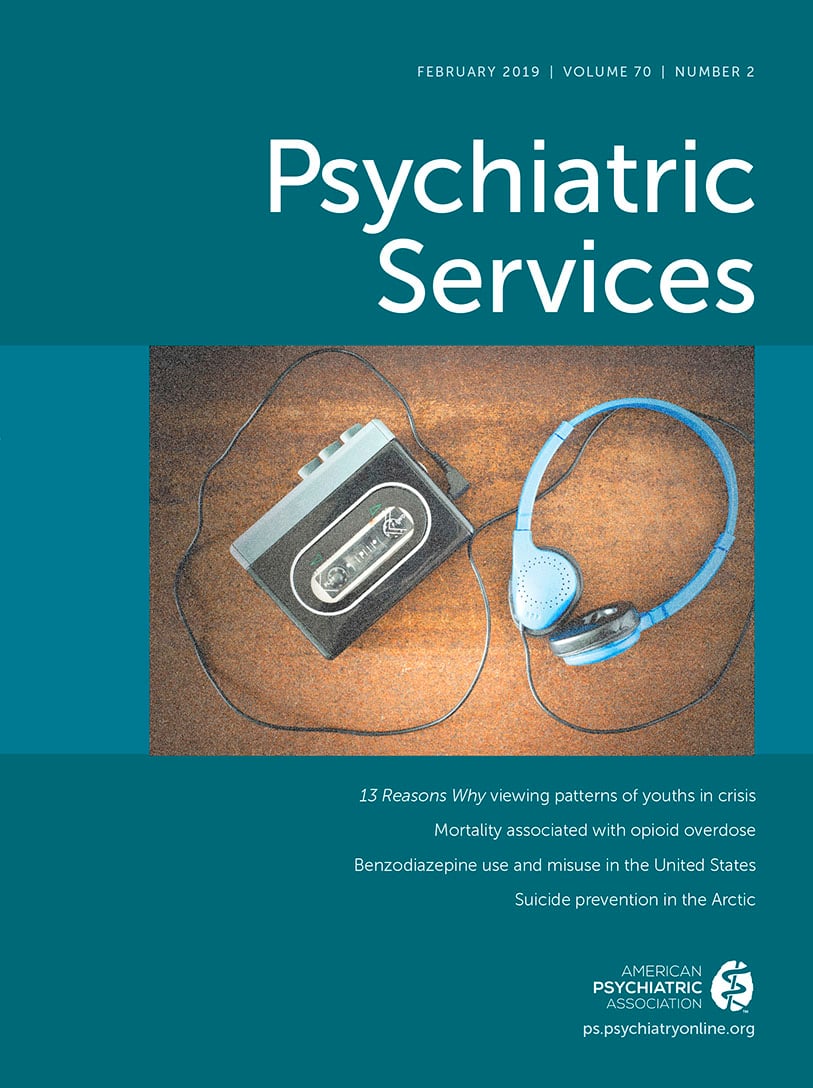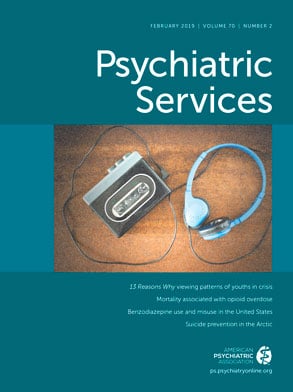Administrative staff play an important, albeit underrecognized and underequipped, role within the therapeutic encounter in mental health care. Although interactions between medical office staff and clients are not typically defined as therapeutic, patients nevertheless often view client-facing staff as an extension of their physician or care team. These interactions can be both meaningful and important to the overall care experience and should be conceptualized and understood as a legitimate part of the larger healing environment.
To this end, we propose a more fulsome understanding of the interactions between clients and administrative staff and the effect of these experiences on the larger clinical encounter, from the perspectives of both clients and staff. We also propose that there are currently a number of unmet training and support needs for client-facing administrative staff.
Positioning Client-Facing Staff as Part of the Larger Therapeutic Experience
Administrative staff working in mental health clinics within hospitals, health centers, or private practices play an important role in patient interactions and, therefore, the therapeutic encounter. Our definition of administrative staff includes those in primarily client-facing roles, such as receptionists, appointment schedulers, and other front-of-office assistants but may also include, albeit to a lesser extent, those working in areas that tend to involve less client interaction, such as billing, for example.
Administrative staff are the first point of contact for patients when they present for appointments or contact a clinic over the phone. Administrative staff are often also the last point of contact. In this way, they may be considered agents of “post-” or “pre-transference” (
1)–setting the tone for clients’ feelings about their pending or previous clinical interaction. Positive interactions have the advantage of being rewarding and meaningful, given that clients may enter or leave the interaction feeling hopeful or respected and showing a pleasant affect. This experience may have important positive effects for encouraging treatment engagement and adherence and hence, outcomes. The opposite experience would have consequences as well.
For example, there can be—and are—instances in which patients leave a clinical interaction feeling agitated or distressed and wish to continue discussing their situation while booking a follow-up appointment. Staff must then try to direct the patient toward booking the appointment, which in certain instances could be interpreted as an uncaring or uncompassionate response. Because staff typically have not been trained in relevant clinical skills—such as how to deescalate emotionally charged interactions—it is common in these situations for administrative staff to feel that they have no other option than to involve security personnel, a distressing outcome for both parties. As well, some patients may present for their appointments feeling anxious or upset, which can influence how they interact with administrative staff.
In some instances, the positive rapport between clients and administrative staff may also lead patients to want to share more personal information. Setting limits can be difficult for staff members because they do not want to negatively affect the patient and often have not received training in how to set these kinds of boundaries. It is also often unclear to staff about how to respond in these situations and where to draw the most appropriate boundary. This has implications for training needs, which are described in greater detail below. It also has implications for hiring considerations, in that certain personality characteristics, so-called soft skills, as well as an openness to working with and learning about the population being served may be important.
Beyond “Good Morning”: The Occupational Stresses of Client-Facing Experiences
We could find no literature that explores the nature of the experiences of mental health administrative staff in the workplace. However, it is likely that administrative staff are vulnerable to factors similar to those affecting mental health clinicians, given the nature of their interactions with patients. However, because administrative staff generally do not have the same level of understanding as clinical staff about various mental illnesses and their symptoms and also typically lack training and skills in interacting with patients with acute mental illnesses, they may be ill equipped to effectively navigate their various interactions with patients.
Indeed, work stress is recognized as a concern for health care workers, and there is a growing body of evidence showing that mental health professionals in particular face additional stressors from working with people with considerable emotional trauma, particularly over a lengthy period of time, with associated potential detrimental effects on service delivery and quality of care (
2,
3). Client-facing administrative medical staff and clinical team members may be exposed to many similar—as well as different—stressors, with comparable negative and positive effects on compassion satisfaction (the pleasure one derives from the caring or helping aspects of one’s work), service delivery, and client interactions. Yet, it appears that research in this area is lacking, given that a recent scan of the literature revealed no relevant studies on the experiences of nonclinical staff working in mental health settings or the perceived adequacy of their training or resiliency skills in this regard.
For example, one of the most difficult aspects of working in mental health care environments is the experience of having a client end his or her life. Although not a frequent occurrence, these tragedies affect administrative staff as well as the clinicians who have worked with the client. Like other members of the care team, administrative staff may have known the patient for many years and may have formed a friendly relationship with him or her. Yet unlike other members of the care team, administrative personnel tend not to be privy to the circumstances, story, or dynamics that may have contributed to the patient’s suicide. What’s more, they typically have not had the kind of training or experience that help clinical staff process the various emotions and effects of these kinds of traumatic events.
Conversely, mental health workers can and do experience satisfaction and privilege from being in a position to make a positive difference in the lives of the clients with whom they work (
4,
5). We believe that mental health administrative staff may also gain similar benefits from their interactions with patients. However, if administrative staff feel ill equipped in many of their more challenging client-facing interactions, they may experience a higher risk of role dissatisfaction or burnout, given that proper training and support have been identified as important mediators of compassion satisfaction (
2–
5).
Research and Training Needs
The role and training needs of client-facing administrative staff in mental health settings is an underidentified topic in the literature. Our search of the literature revealed no studies on either of these two issues. Research is thus needed to gain a better understanding of the role of administrative staff in the larger clinical encounter from the perspective of both clients and staff. This task includes, first and foremost, needs assessment and other qualitative research on staff’s experiences, interests, and motivations regarding their client-facing interactions and roles.
From this research, it should be possible to conduct an informed dialogue about the role and responsibilities of administrative staff—for example, should staff legitimately be considered part of the therapeutic experience? If so, how should this role be defined? Should staff be involved in clinical discussions, case conferences, or debriefing sessions on patients with whom they have been involved? If not, how should the relationship between staff and clients be understood, and how can staff be better assisted to navigate interactions such as those described above?
Greater training for client-facing administrative staff is also needed. Again, research on the identification or confirmation of specific training needs, as well as potential barriers or resistance to training, is also important. At this preliminary stage we propose four avenues for training that would be of benefit. First, general education on mental illnesses would provide greater understanding on such things as contributing factors, signs and symptoms, and the clients’ experiences. Second, training in communication techniques would help staff navigate interactions with clients who may be experiencing symptoms of their mental illness. Mental Health First Aid, the provider education program developed by the National Alliance on Mental Illness, training in boundary setting, and training in deescalation techniques and interprofessional social and emotional intelligence skills are some program examples (
6–
8).
Third, training in stigma reduction would be of benefit (
9). One example is a short program called Understanding Stigma, which has shown encouraging results with nonclinical staff and is now available in a Web-delivered format (
10). Finally, inward-facing training to help enhance resiliency skills and compassion satisfaction and mitigate occupational stressors would be of value (
11–
13). For example, the Working Mind program has shown positive results in health care settings (
14; unpublished research, Dobson, Szeto, and Knaak, 2018).
Conclusions
For the most part, people work in health care environments because of a desire to help. Along with that desire comes an innate compassion for those who are suffering. These qualities also apply to those who work in client-facing administrative roles. Yet, despite the considerable contact between client and administrative staff, the role played by these staff and their interactions with clients are not generally considered part of the therapeutic encounter. Lack of training—along with a general lack of recognition and understanding of the role of front-facing staff in the therapeutic encounter—can put an emotional weight on the staff and on their interactions with clients. It is time to rethink the role and training needs of client-facing administrative staff in mental health settings and direct greater research attention to the role and training needs of these essential employees.
Interactions between clients and administrative medical staff have the potential to be crucially and meaningfully important, in either positive or negative ways. The function and role of administrative staff in this regard warrants greater consideration and investigation, and providing adequate support, training, and skill development to administrative staff deserves greater attention.
Acknowledgments
The authors acknowledge the North York Hospital Foundation and the Mental Health Commission Canada for support of this research.

